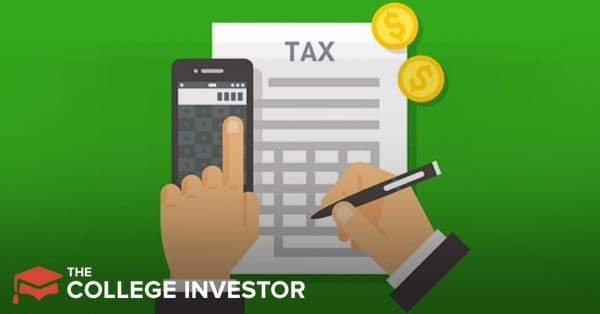
Not everyone is required to file a tax return. It depends on your age, filing status, and amount and type of income.
If you make little income, chances are you won’t need to file. But there are some circumstances outside of income that can require filing a tax return.
Let’s look at what’s involved in understanding how much you need to make to file a tax return. If you’re looking for an easy way to file your taxes, check out TurboTax. They are partnering with us to highlight how much you need to earn to file your taxes.
Note: This video may show some older deduction numbers, but the rules still apply.
Know The Standard Deduction
In general, you DON’T need to file a tax return if your income was less than the standard deduction.
For 2022 (the tax year that you file in the beginning of 2023), the standard deduction was $12,950 for those filing single. The standard deduction reduces taxable income. For someone making less than the standard deduction, their taxable income would be reduced to below $0.00. Obviously, that means there are no taxes due since there is no income to tax. The standard deduction does vary with filing status:
Standard Deduction 2022 Tax Year | |
|---|---|
Single | $12,950 |
Head of Household | $19,400 |
Married Filing Separately | $12,950 |
Married Filing Jointly | $25,900 |
Qualifying Widow(er) | $25,900 |
For those over 65 years of age, the standard deduction increases depending on your filing status:
Over 65 Increase in Standard Deduction 2022 Tax Year | |
|---|---|
Single or HoH | $1,750 |
Married Filing Joint and 1/2 over 65 | $1,400 |
Married Filing Joint and Both 65+ | $2,800 |
Because of the higher standard deduction, someone over 65 can make more than someone less than 65 and still end up paying less in taxes or even no taxes.
For those who are legally blind, the standard deductions are:
Legally Blind Increase in Standard Deduction 2022 Tax Year | |
|---|---|
Single or HoH | $1,750 |
Married Filing Joint and 1/2 Blind | $1,400 |
Married Filing Joint and Both Blind | $2,800 |
With the standard deduction covered, let’s look at filing income thresholds.
Income Filing Thresholds
The following is the lowest tax bracket for 2022:
Rate | Single | Married Filing Jointly | Married Filing Separately | Head of Household |
|---|---|---|---|---|
10% | $0 - $10,275 | $0 - $20,550 | $0 - $10,275 | $0 - $14,650 |
To understand how tax brackets work with the standard deduction, let’s say a 27-year-old single person makes $8,500 for the year. Does that mean they must pay a 10% tax on their income? No — the standard deduction must also be applied. The standard deduction for those under 65 is $12,950. Subtracting the standard deduction from this person’s income results in no taxable income. Therefore, no taxes are owed. If the same person made $12,951, they would be taxed on the $1.00.
For married filing jointly, tax brackets are double what they are for a single person (at the lowest levels). The standard deduction for this filing status is $25,900. For married couples under 65 years of age, they will need to make $25,901 before taxes kick in.
If you don’t know what you’re adjusted gross income is, read this guide.
Are You A Dependent?
Parents can claim their children as dependents until age 19. If they are continuing their education, parents can claim them until age 24.
If you are a single dependent under the age of 65 and not blind, your tax filing will depend on unearned income, earned income, and gross income:
- Unearned Income: $2,300
- Earned Income: $12,950
- Gross Income: Was more than the larger of either $1,150 or your earned income up to $12,600 plus $350
Even if you could be claimed as a dependent and don’t need to file a return, you may still want to in order to claim a tax refund.
We have a full article on parents and dependents here.
Social Security Benefits
For seniors with social security benefits, generally, these benefits are not considered income and, therefore, not taxable. The situation changes if you are married and file a joint return with a spouse who is also 65 or older. In that case, if you have a combined income of more than $28,700, you must file a return. If your spouse is less than 65, your combined income needs to be more than $27,300.
The above amounts generally increase a little each year.
There are a couple of scenarios in which social security benefits must be included in your gross income. If you are married and file separate returns and have lived with your spouse at any time during the year, 85% of your social security must be included in gross income. This might push you past an income threshold, requiring you to file a tax return.
Another scenario arises when you have income in addition to your social security. If half of your social security benefits plus your other income, including tax-exempt interest, exceeds $25,000 or $32,000 (married filing jointly), a portion of social security will be included in gross income. This is independent of your filing status.
These Situations May Require A Tax Return
You might also be required to file for reasons other than, such as if you’re:
- Self-Employed and earned at least $400 (including driving for rideshare, etc)
- Received payment on a 1099-MISC or 1099-NEC form
- Bought health insurance from a state or federal marketplace
Just like the tax code, trying to determine if you make enough income to file a tax return can get involved. If you are unsure, it’s best to speak with a tax professional or use DIY tax software to see if it makes sense to file.
Why You Might Still Want To File A Tax Return
Even if you don’t need to file a tax return, you may still want to in order to claim your tax refund. For example, maybe you worked a part-time job and earned $5,000. You may have paid money in taxes, and you could get it back by filing a tax return.

Robert Farrington is America’s Millennial Money Expert® and America’s Student Loan Debt Expert™, and the founder of The College Investor, a personal finance site dedicated to helping millennials escape student loan debt to start investing and building wealth for the future. You can learn more about him on the About Page or on his personal site RobertFarrington.com.
He regularly writes about investing, student loan debt, and general personal finance topics geared toward anyone wanting to earn more, get out of debt, and start building wealth for the future.
He has been quoted in major publications, including the New York Times, Wall Street Journal, Washington Post, ABC, NBC, Today, and more. He is also a regular contributor to Forbes.
Editor: Clint Proctor
